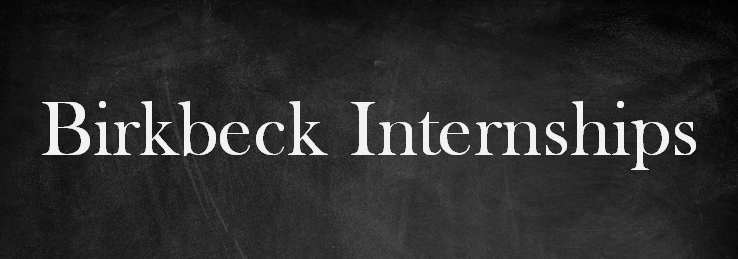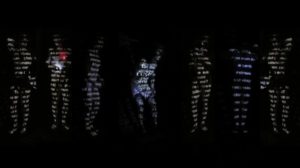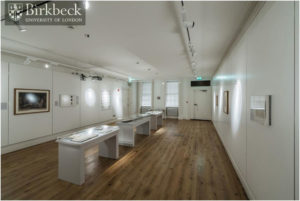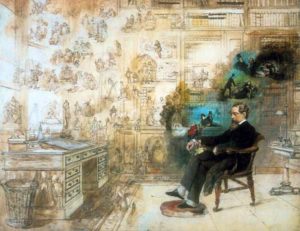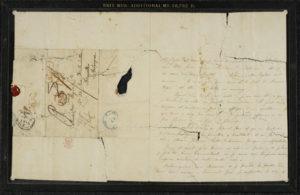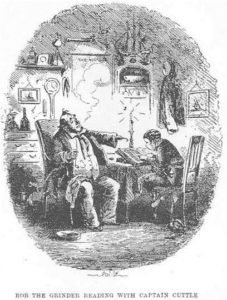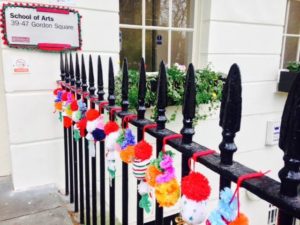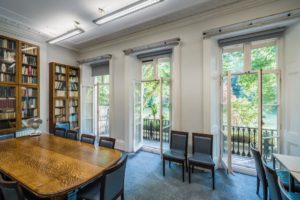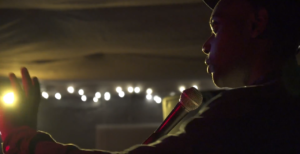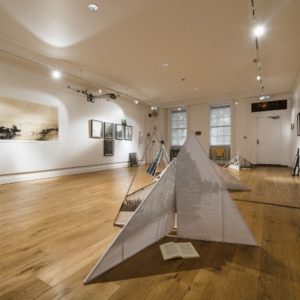Pauline Suwanban
My experience starting a PhD was certainly shaped by my internship with Birkbeck Institutes.
It gave me a rich introduction into academia and public engagement. The Birkbeck Institutes of Social Research, Gender and Sexuality, and Humanities are directed by Professors Jacqueline Rose, Slavoj Zizek, Esther Leslie, Felicity Callard and Kate Maclean. The institutes promote interdisciplinary research on critical issues through public debates, lectures and workshops. They also founded the London Critical Theory Summer School, which is a two-week course where graduate students engage with internationally acclaimed academics.
I joined a group with three other PhD students from different Schools across the university, trained and supervised by the manager of the Institutes. We provided basic assistance at events. This ranged from registration (which in other words meant crowd control when it came to the Slavoj Zizek and Judith Butler talks), AV support, to being on hand in case of any technical hitches. We also promoted the events through emails and social media. This involved reaching out to specific audiences who could be interested- quite tricky for some niche events, especially in the case of one interdisciplinary stem cell and nutrition lecture. We also sourced and wrote blog posts for the website about research topics and events supported by the Institutes.

As interns we were also responsible for organising the annual graduate conference; a two-day event which encouraged MA and PhD students to present their work within a supportive environment. This was a more challenging and rewarding experience than I had anticipated. The budget had been allocated and room was pre-booked; which left the rest to our management. This included the theme, call for papers, keynote speaker invitations and the programme. This year’s theme was ‘the Age of Distraction’. We interrogated the meanings and implications of distraction, its reputation in modern societies, its potential to disrupt and to create. We had a broad range of stimulating panels which explored the role of distraction within aesthetics, politics, psychology, digital media and education. Our keynote speakers were Prof. Carolin Duttlinger from the University of Oxford, who insightfully discussed the ‘Narratives of Distraction’ from Kant to modernism, and Dr. Sophie Jones from Birkbeck’s English department, whose provocative paper explored minimalist literature and attention deficit disorder.
We also presented a mini-exhibition of Dr. Kai Syng Tan’s photographic series (BADGE-WEARING MIND WANDERING IN ACTION 2017). Dr. Tan’s work, which explored the fusion of at and mental health, was complemented with energetic drawings from the public which interpreted the concept of mind-wandering. This display was curated by Alessandra Cianetti, who joined Dr. Jones and Prof. Callard in a discussion on mind-wandering, contemporary art and day-dreams. She also presented a very arresting film by Dr. Tan, which surrounded the audience with the visual and sensory impact of attention deficit disorder.

I easily underestimated the time that had to be spent for all the logistics and unexpected obstacles, which sometimes felt like an endless checklist! But there were certainly fulfilling moments, especially from noticing the pride in fellow students and the enriched thoughts of a public audience.
I would urge anyone to apply for this internship. It ticks all the boxes in building an academic career and is a wonderful way to meet new people who could inspire your research. Keep an eye on the BIH and BISR websites for recruitment and join the mailing lists to keep up to date with upcoming activities. If you are unsuccessful, there are still ways to get involved, such as volunteering at events, writing a blog post and joining the next graduate conference as a speaker or helper.
Pauline Suwanban is a second year English PhD candidate. Follow her on Twitter @paulinesuwanban

